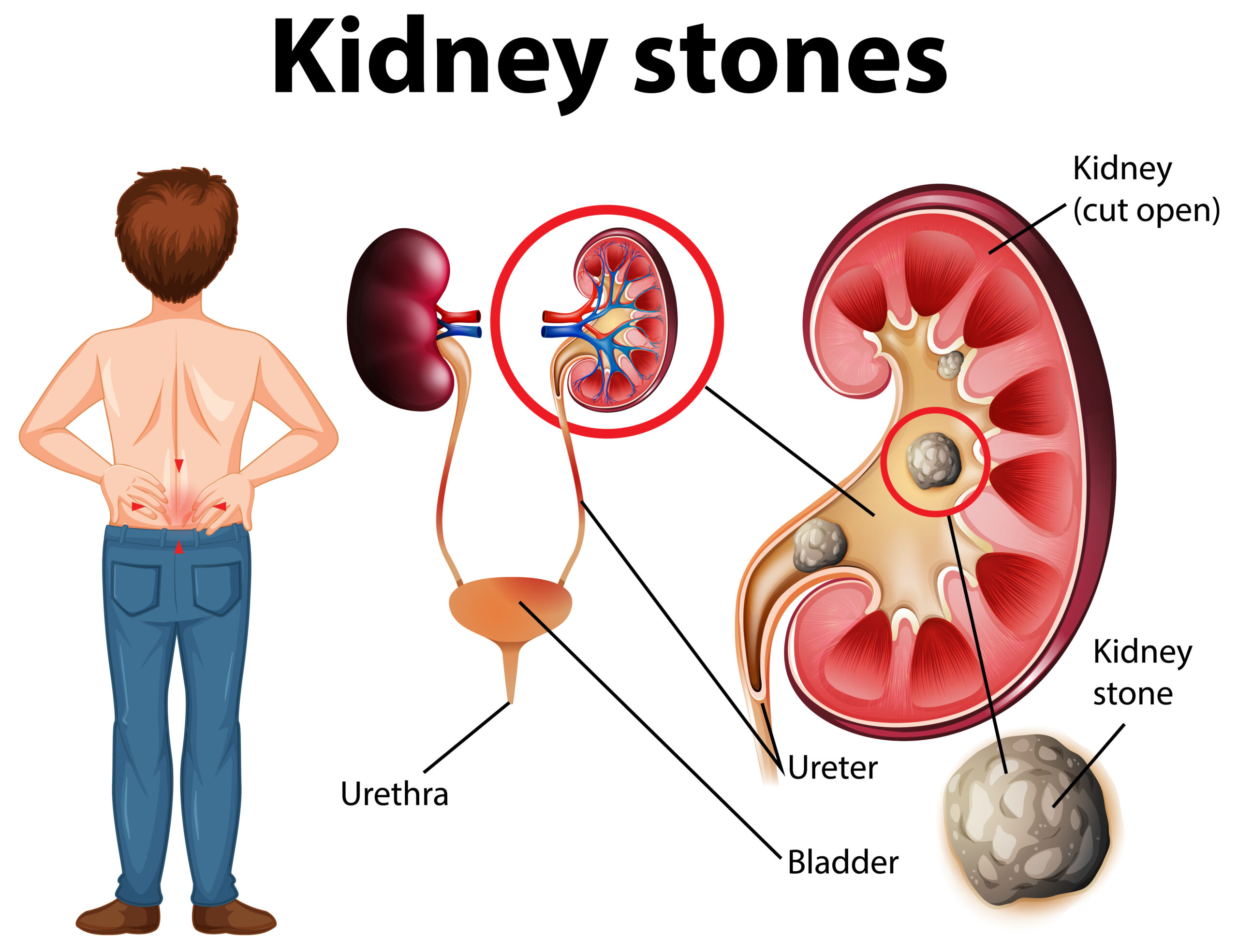Diagnosis of Kidney Stones
Accurate diagnosis is crucial for effective treatment. Common diagnostic methods include:
- Imaging Tests: CT scans, X-rays, or ultrasounds to locate stones.
- Urinalysis: Identifying blood, crystals, or infections in the urine.
- Blood Tests: Checking for high levels of calcium, uric acid, or other substances.
Kidney Stone Removal Techniques
India offers a range of advanced treatments tailored to the patient’s condition.
1. Extracorporeal Shock Wave Lithotripsy (ESWL):
- What It Is: Non-invasive procedure using sound waves to break kidney stones into small fragments.
- Advantages: No surgery required, quick recovery time.
2. Ureteroscopy (URS):
- What It Is: A thin tube is inserted through the urethra to locate and remove stones. Laser is often used for breaking larger stones.
- Advantages: Minimally invasive, suitable for stones in the ureter.
3. Percutaneous Nephrolithotomy (PCNL):
- What It Is: A small incision in the back allows direct access to the kidney to remove larger stones.
- Advantages: Effective for complex or larger stones.
4. Laser Lithotripsy:
- What It Is: High-energy lasers break the stones into fine particles.
- Advantages: Precise, minimally invasive, and quick recovery.
5. Open Surgery:
- What It Is: Reserved for rare cases with large, complicated stones.
- Advantages: Addresses severe cases when other methods fail.
Preventive Measures Post-Treatment
- Stay Hydrated: Drink at least 2-3 liters of water daily.
- Balanced Diet: Limit salt, oxalate-rich foods, and excessive animal protein.
- Medications: As prescribed to prevent recurrence.
- Regular Monitoring: Periodic imaging tests to detect any new stone formation.
Why Choose India for Kidney Stone Removal?
India has gained a reputation as a global destination for kidney stone treatments, thanks to its combination of skilled surgeons, cutting-edge technology, and affordable care.
Advantages:
- State-of-the-art medical facilities.
- Access to advanced techniques like ESWL and PCNL.
- Cost-effective treatment packages.
- Experienced urologists with international exposure.
- Minimal waiting times for procedures.
Why Choose Healtour Solutions?
- Comprehensive Care: From diagnosis to post-treatment follow-ups.
- Top Hospitals: Partnerships with renowned urology centers in India.
- Affordable Packages: Tailored to meet your needs and budget.
- Hassle-Free Experience: Visa assistance, accommodation, and travel arrangements.
- Expert Guidance: Support from experienced medical coordinators.
Recovery Process
- Immediate Care: Pain management and hydration.
- Activity Resumption: Most patients can return to normal activities within a week.
- Follow-Up Visits: Ensure the complete removal of stones and assess kidney health.
Benefits of Kidney Stone Removal
- Immediate pain relief.
- Prevention of infections and complications.
- Restoration of normal kidney function.
- Improved quality of life.
FAQs
- Can kidney stones be treated without surgery?
Yes, small stones often pass naturally or with medications. Larger stones may require non-invasive or minimally invasive techniques. - Is kidney stone removal painful?
Modern techniques like ESWL and laser lithotripsy are designed to minimize pain and ensure quick recovery. - What’s the recovery time for kidney stone procedures?
Recovery time varies by procedure. ESWL and URS patients recover within days, while PCNL may take a week. - Can kidney stones recur?
Yes, without preventive measures like proper hydration and dietary changes, stones can form again. - How much water should I drink daily to prevent kidney stones?
At least 2-3 liters of water daily is recommended. - Are kidney stones hereditary?
Yes, a family history of kidney stones can increase your risk. - What dietary changes help prevent kidney stones?
Reduce salt, oxalate, and animal protein intake. Include more fruits and vegetables in your diet. - Are there risks associated with kidney stone removal?
Risks are minimal with modern techniques but can include mild bleeding, infection, or recurrence. - How long does an ESWL procedure take?
The procedure usually takes about 30-60 minutes. - Can children develop kidney stones?
Yes, although rare, children can develop stones due to genetic or dietary factors.



